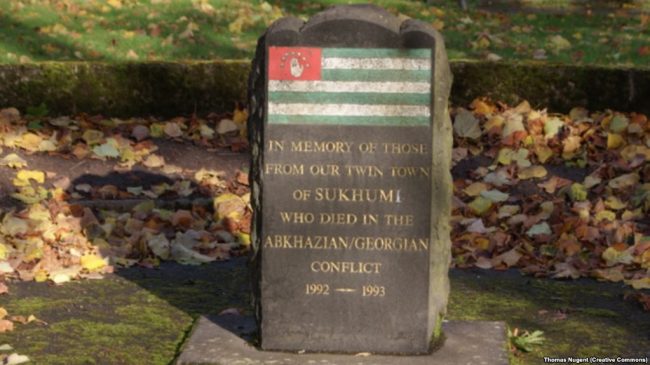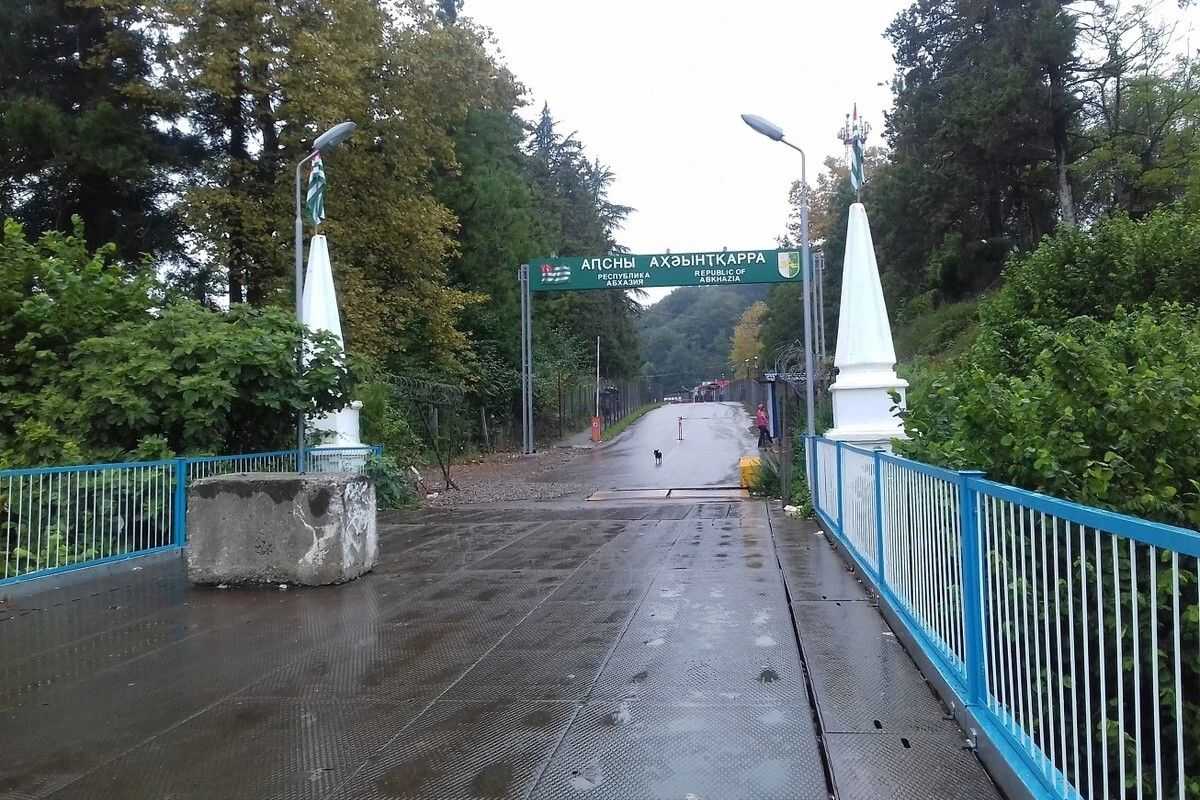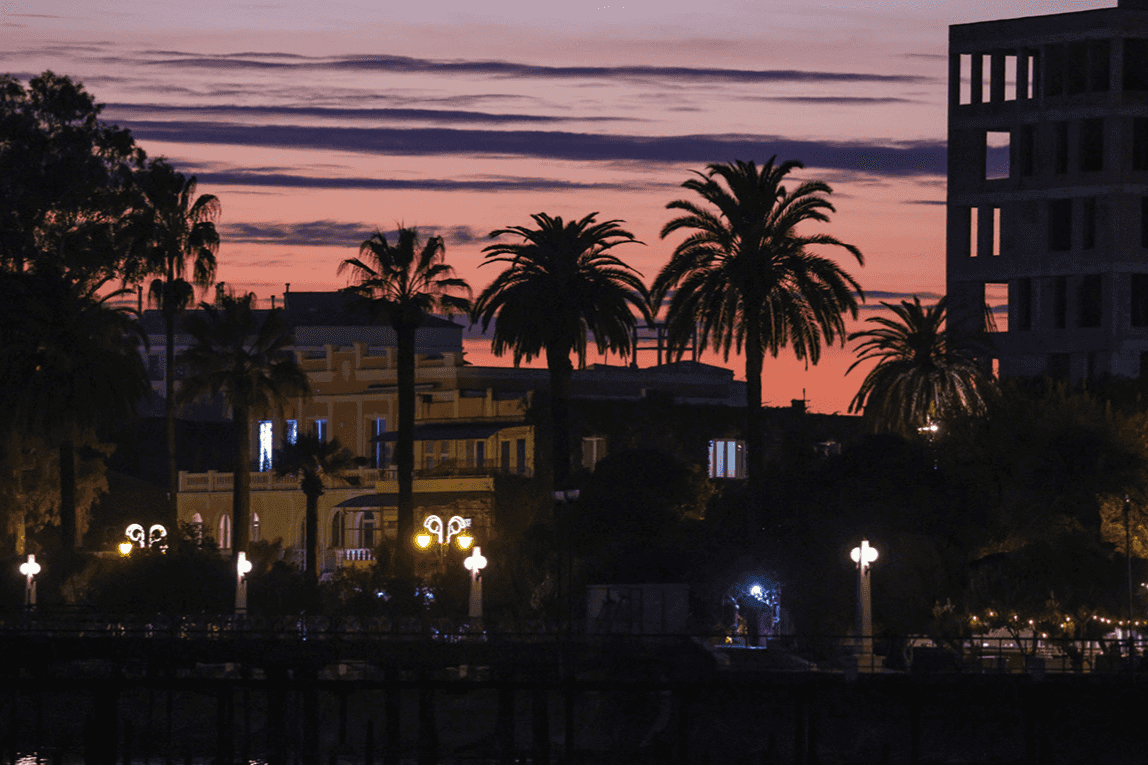

 A memorial to victims of the Georgia–Abkhazia war in the Scottish town of Kilmarnock has been removed at the request of Georgian authorities. Abkhazian leaders have expressed outrage at the removal.
A memorial to victims of the Georgia–Abkhazia war in the Scottish town of Kilmarnock has been removed at the request of Georgian authorities. Abkhazian leaders have expressed outrage at the removal.
Dismantling the memorial
The memorial, with the inscription ‘in memory of those from our twin town of Sukhumi who died in the Abkhazian/Georgian conflict 1992–1993’, also bore an Abkhazian flag. Kilmarnock is twined with Sukhumi (Sukhum).
Tamar Beruchashvili, Georgian Ambassador to the United Kingdom, announced on 9 November that the memorial had been removed following month-long negotiations with British authorities — including the Scottish government and local authorities in Kilmarnock.
‘The memorial was dismantled as a result of very active efforts from the Georgian Embassy, after my visit to Edinburgh’, Beruchashvili told Netgazeti.
East Ayrshire Council, of which Kilmarnock is a part, has not yet responded to a request for comment.
‘Non-Recognition and Engagement’
The push to remove the memorial follows Georgia’s ‘Non-Recognition and Engagement Policy’, which is supported by the US and EU. The policy was adopted after the August 2008 War, after which Russia recognised the independence of Abkhazia and South Ossetia.
The ambassador reiterated the policy, saying ‘Georgian diplomacy must use every possible platform against Russian propaganda’.
‘There are many means for this — using symbols, publishing articles, cooperating with private companies, cooperating with commercial and industrial chambers, etc’, Beruchashvili told InterPressNews.
According to Beruchasvhili this involves ‘discovering and studying anything that supports the so-called independence of Abkhazia and South Ossetia, which are a result of Russian propaganda’.
As part of the policy, Georgian authorities blocked an agreement between Sukhumi and the Italian town of Santa Maria Del Cedro in early May. Georgia also blocked the opening of an Abkhazian cultural institute in Rome in 2016, and an Abkhazian stall was shut down at a Montenegro tourism expo in April 2016, after Georgian officials intervened. They claimed that it presented Abkhazia, which Georgia sees as a part of their territory under Russian military occupation, as an independent state.
Anger in Abkhazia
In a 10 November statement, Abkhazia’s Foreign Affairs Ministry slammed the removal of the memorial, calling it a ‘barbaric move’ and an ‘act of vandalism aimed at destroying the historical memory of the Abkhaz people’.
A number of Abkhazians spoke out against the removal online, taking to Facebook with the hashtag #SaveAbkhazMemorial, while Deputy Foreign Minister Kan Taniya launched an online petition.
‘The people of the Republic of Abkhazia call on international mediators, the UK government and the Kilmarnock authorities to provide an adequate and objective assessment of Georgia’s destructive actions and to not dismantle the memorial dedicated to the Abkhazians who fell in the Georgian–Abkhaz war of 1992–1993’, the petition urges. It has attracted more than 1,700 signatures so far.
Meanwhile, the Abkhazian Foreign Ministry called on ‘international mediators in the Geneva international discussions to provide an adequate and objective assessment of Georgia’s destructive actions’.
The Geneva International Discussions are an international discussion format launched in October 2008 to address the consequences of the 2008 War. It is co-chaired by the EU, OSCE, and UN.
For ease of reading, we choose not to use qualifiers such as ‘de facto’, ‘unrecognised’, or ‘partially recognised’ when discussing institutions or political positions within Abkhazia, Nagorno-Karabakh, and South Ossetia. This does not imply a position on their status.









